Clive Aspin – New Zealand
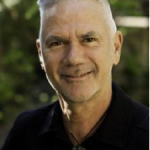 Dr Clive Aspin is a public health researcher who completed his public health training in New Zealand where he is affiliated to Ngati Maru in his tribal area of Hauraki. He has been a leader of IIWGHA since its inception.
Dr Clive Aspin is a public health researcher who completed his public health training in New Zealand where he is affiliated to Ngati Maru in his tribal area of Hauraki. He has been a leader of IIWGHA since its inception.
Clive has an extensive background in research management, governance as well as Maori and indigenous public health research. His research has focused on issues related to the Maori health and disability workforce, as well as indigenous sexuality and the resilience of indigenous communities. He also has a strong research interest in the impact that HIV has had on indigenous communities.
He was the lead New Zealand investigator on a collaborative project with Australia, and Canada that investigated the impact of HIV on indigenous communities in the three countries, and examined the role of resilience in responding to HIV.
Clive has extensive governance experience gained from membership of a number of boards, most notably the Health Research Council of New Zealand. He held the inaugural position of Executive Research Officer at Nga Pae o te Maramatanga, New Zealand’s Maori centre of research excellence at the University of Auckland and played a key role in setting up the infrastructure of the centre. He was also the Founding Editor of AlterNative, an international peer-reviewed journal of indigenous scholarship.
Today, Clive lives in Sydney with his partner and family, where he works as an independent consultant.
Elisa Canqui – Bolivia
Ms. Elisa Canqui Mollo, is Aymara from Bolivia. As an Indigenous activist, she has been involved in the struggle to recognise indigenous peoples rights since 1997. She was appointed as a Member of UN Permanent Forum on Indigenous Issues (2008/2010) where she addressed HIV/AIDS and TB in the agenda of UNPFII doing advocacy in many international scenarios. She is currently an independent consultant on Indigenous issues and works for NGOs, International Cooperatives, Indigenous organisations and government in such areas as health, rural development, Indigenous leadership and municipal development. Elisa is currently working on her PhD in Development Management and Public Policy.
Ken Clement – Canada
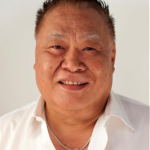 Ken Clement of Ktunaxa First Nations ancestry has resided in Vancouver for 30 years and is the Chief Executive Officer of the Canadian Aboriginal AIDS Network (CAAN) and contributor to the leadership of numerous Aboriginal organizations serving Aboriginal people in Metro Vancouver region. He has offered steady executive guidance to Aboriginal health organizations and has been involved in the Aboriginal HIV and AIDS movement since 1980. Currently Ken is involved with the National Aboriginal Council on HIV and AIDS (NACHA) and collaborates with many of Canada’s leading National and Aboriginal organizations to advocate on this health issue for Canada’s Aboriginal people.
Ken Clement of Ktunaxa First Nations ancestry has resided in Vancouver for 30 years and is the Chief Executive Officer of the Canadian Aboriginal AIDS Network (CAAN) and contributor to the leadership of numerous Aboriginal organizations serving Aboriginal people in Metro Vancouver region. He has offered steady executive guidance to Aboriginal health organizations and has been involved in the Aboriginal HIV and AIDS movement since 1980. Currently Ken is involved with the National Aboriginal Council on HIV and AIDS (NACHA) and collaborates with many of Canada’s leading National and Aboriginal organizations to advocate on this health issue for Canada’s Aboriginal people.
Ken’s introduction to formal education began with a decade spent in Residential School. His personal experiences within this education system led to the strengthening and resiliency of his character which is the foundation for his passion and commitment to social justice issues.
Serving as the first ever Aboriginal Trustee of the Vancouver School Board, Ken works tirelessly to enhance the educational system’s ability to provide an opportunity to succeed for every student, regardless if where they live in the city, their income level or cultural background, particularly amongst Aboriginal students. Ken’s efforts have provided a much needed voice for the advancement of social justice, health, housing and educational conditions for Aboriginal people. He sees the work in these areas and others as inspiring and empowering Aboriginal people to dream of a better, forward-looking life, while being respectful of the grounding and family-based communities and traditions they value.
Juana Cheuquepan Colipe – Chile
Juana is a community educator, with a Masters in Management of Development with Identity. Ms. Cheuquepan Colipe is a leader from the Indigenous Association Kiñe Pu Liwen, originally from Lautaro, 9th Region of Temuco in southern Chile. She has played a diverse role in community education and HIV and AIDS advocacy in Chile. She has worked as a Traditional Educator in local schools and in the Mapuche community, in La Pintana, corresponding to the Pikunche Territory (People of the North). In 2011, she developed innovative HIV educational materials for the International Labour Organization (ILO),from the perspective of the Mapuche worldview. She also lent her voice to the first translation into an Indigenous language (Mapudungun) of the ILO’s Recommendation concerning HIV and AIDS and the working world.
Michael Costello – Australia
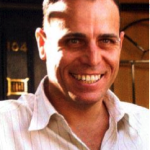 Michael Costello is Arrente of the Central Australian Arrente Nation; his family’s country is Titjikarla. He was raised in Alice Springs; however has spent most of his adult life living in the city with his partner Corey and 3 dogs. Michael still has very strong connections to his country and returns regularly. Michael’s involvement with the Anwernekenhe movement began in 1998 at Anwernekenhe 2, where he was elected to the Anwernekenhe Steering Committee. Soon after Michael accepted a position with the Australian Federation of AIDS Organisations (AFAO), in the role of Senior Policy and Programs Officer with the National Aboriginal and Torres Strait Islander HIV/AIDS Project, a position he held until December 2011. In December 2011, Michael was extremely honoured to take on the role of Executive Officer of the ANA with an 18 month contract. As Executive Officer Michael is charged with securing ongoing funding for the ANA, development and implementation of our first ever strategic plan and establishing our secretariat office. Michael upholds a strong commitment to self-determination for Aboriginal and Torres Strait Islander people, ensuring that we maintain and continue to build an effective community response to HIV.
Michael Costello is Arrente of the Central Australian Arrente Nation; his family’s country is Titjikarla. He was raised in Alice Springs; however has spent most of his adult life living in the city with his partner Corey and 3 dogs. Michael still has very strong connections to his country and returns regularly. Michael’s involvement with the Anwernekenhe movement began in 1998 at Anwernekenhe 2, where he was elected to the Anwernekenhe Steering Committee. Soon after Michael accepted a position with the Australian Federation of AIDS Organisations (AFAO), in the role of Senior Policy and Programs Officer with the National Aboriginal and Torres Strait Islander HIV/AIDS Project, a position he held until December 2011. In December 2011, Michael was extremely honoured to take on the role of Executive Officer of the ANA with an 18 month contract. As Executive Officer Michael is charged with securing ongoing funding for the ANA, development and implementation of our first ever strategic plan and establishing our secretariat office. Michael upholds a strong commitment to self-determination for Aboriginal and Torres Strait Islander people, ensuring that we maintain and continue to build an effective community response to HIV.
Amaranta Gómez – Mexico
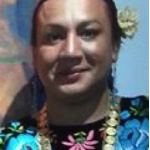 Amaranta Gómez is a trans-gender member of the Muxhe Indigenous community of Juchiitan, Oaxaca. She is currently doing a Bachelor’s Degree in Social Research, and she coordinates the Binni Laanu (Our People) collective, which works on issues of sexual health and cultural for identity. As a feminist activist, she has been involved in the struggle against HIV/AIDS and for sexual and reproductive health since 1995. She has facilitated workshops on gender, sexual identity, self-esteem, sexuality, leadership, political advocacy, health and key populations for the development of public policy. Amaranta is a founder and member of a number of community networks, including the Mexican Network for Youth Reproductive and Sexual Rights, the Democracy and Sexuality Network (DEMISEX, by its Spanish initials), the Latin American HIV/AIDS Organisations Network (LACASSO, by its Spanish initials), and the Latin American Network of Transgender People for Visibility. She is a member and a regional secretary for the International Lesbian, Gay, Bisexual, Trans and Intersex Association’s the Latin American and Caribbean Region (ILGA-LAC). She has been a keynote speaker at International AIDS conferences such as Durban 2000, Toronto 2006, and Mexico 2008. She was elected Secretary for the International Secretariat of the Indigenous and Afro-Descendants Peoples and HIV/AIDS, Sexuality and Human Rights.
Amaranta Gómez is a trans-gender member of the Muxhe Indigenous community of Juchiitan, Oaxaca. She is currently doing a Bachelor’s Degree in Social Research, and she coordinates the Binni Laanu (Our People) collective, which works on issues of sexual health and cultural for identity. As a feminist activist, she has been involved in the struggle against HIV/AIDS and for sexual and reproductive health since 1995. She has facilitated workshops on gender, sexual identity, self-esteem, sexuality, leadership, political advocacy, health and key populations for the development of public policy. Amaranta is a founder and member of a number of community networks, including the Mexican Network for Youth Reproductive and Sexual Rights, the Democracy and Sexuality Network (DEMISEX, by its Spanish initials), the Latin American HIV/AIDS Organisations Network (LACASSO, by its Spanish initials), and the Latin American Network of Transgender People for Visibility. She is a member and a regional secretary for the International Lesbian, Gay, Bisexual, Trans and Intersex Association’s the Latin American and Caribbean Region (ILGA-LAC). She has been a keynote speaker at International AIDS conferences such as Durban 2000, Toronto 2006, and Mexico 2008. She was elected Secretary for the International Secretariat of the Indigenous and Afro-Descendants Peoples and HIV/AIDS, Sexuality and Human Rights.
Jose Martin Yac Huix – Guatemala
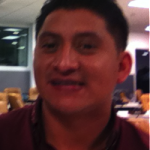 Jose Martin Yac Huix, a Maya Kiché; Political Scientist and International Relations specialist, with 10 years of experience strengthening children’s and adolescents’ skills on issues of sexuality, from a Human Rights perspective, with the goal of reducing the cases of STDs, HIV and AIDS; generating policy approaches which can become part of the national response system by proposing routes that respect the Human Rights of nations, their cosmology, Land and Identity Rights, and the wise practices of Indigenous people of Guatemala.
Jose Martin Yac Huix, a Maya Kiché; Political Scientist and International Relations specialist, with 10 years of experience strengthening children’s and adolescents’ skills on issues of sexuality, from a Human Rights perspective, with the goal of reducing the cases of STDs, HIV and AIDS; generating policy approaches which can become part of the national response system by proposing routes that respect the Human Rights of nations, their cosmology, Land and Identity Rights, and the wise practices of Indigenous people of Guatemala.
Denise Lambert – Canada
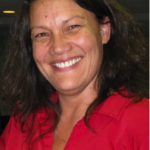 Denise Lambert shares her life with five children, ages 11 to 21. She resides in the Summer Village of Sandy Beach, Alberta. Her formal involvement in HIV/AIDS prevention and support began inside correctional facilities in 1987. She currently works with the Kimamow Atoskanow Foundation, a rural based service organization providing mobile education and support throughout Alberta. As a member of the National Aboriginal Council on HIV/AIDS, Denise brings the perspective of Métis and First Nations communities into HIV and related policy discussions. A graduate of the Faculty of Physical Education and Recreation, Denise is completing her MSc at the University of Alberta in Health Policy research focusing on Indigenous populations.
Denise Lambert shares her life with five children, ages 11 to 21. She resides in the Summer Village of Sandy Beach, Alberta. Her formal involvement in HIV/AIDS prevention and support began inside correctional facilities in 1987. She currently works with the Kimamow Atoskanow Foundation, a rural based service organization providing mobile education and support throughout Alberta. As a member of the National Aboriginal Council on HIV/AIDS, Denise brings the perspective of Métis and First Nations communities into HIV and related policy discussions. A graduate of the Faculty of Physical Education and Recreation, Denise is completing her MSc at the University of Alberta in Health Policy research focusing on Indigenous populations.
Williams Patricio Morales Madariaga – Chile
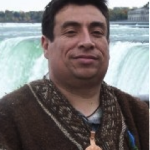 Willy Morales is the Mapuche President of the Kelwo Chiloé AIDS service organization. Kelwo is run by and for Indigenous people living with HIV & AIDS and is located on the largest island of the Chiloé Archipelago off the coast of Chile, in the Pacific Ocean. Willy is also an active member of the International Secretariat of Indigenous and Afro-descendants for HIV / AIDS, Sexuality and Human Rights.
Willy Morales is the Mapuche President of the Kelwo Chiloé AIDS service organization. Kelwo is run by and for Indigenous people living with HIV & AIDS and is located on the largest island of the Chiloé Archipelago off the coast of Chile, in the Pacific Ocean. Willy is also an active member of the International Secretariat of Indigenous and Afro-descendants for HIV / AIDS, Sexuality and Human Rights.
Through Kelwo, Willy addresses issues of discrimination, reinforced by cultural barriers of language, poverty, access to education in the isolated Indigenous communities as it relates to HIV/AIDS, health and human rights.
Elton Naswood (Navajo) – USA
Elton is of the Near to the Water People Clan, born for the Edge Water People Clan, his maternal grandfather’s clan is of the Mexican People, his paternal grandfather’s clan is of the Tangle People, this is how he is Navajo, Dine.
He is originally from Whitehorse Lake, New Mexico, and grew up in Window Rock, Arizona on the Navajo Reservation. He currently resides in Denver, Colorado.
Mr. Naswood is a Capacity Building Assistance Specialist at the National Native American AIDS Prevention Center (NNAAPC). He was formally the Founder and Program Coordinator for the Red Circle Project, AIDS Project Los Angeles (APLA).
He is a member of the Community Expert Advisory Council for the Indigenous HIV/AIDS Research Training (IHART) program at the University of Washington and a member of the Colorado HIV/AIDS Prevention Advisory Committee (HPAC). Additionally, he was previously a member of the Community Advisory Council for NNAAPC; Advisory Board for the Office of Minority Health Resource Center, and Board of Directors for the Los Angeles American Indian Community Council.
Mr. Naswood received his Bachelors of Arts Degree in Sociology and American Indian Justice Studies from Arizona State University and attended the Graduate program in American Indian Studies at the University of California, Los Angeles.
Marama Pala – New Zealand
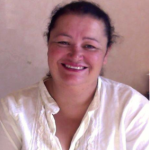 Marama Pala (Ngatiawa ki Kapiti Iwi), BML, BMA, AdvDip Business systems, was infected with HIV in 1993; her status was highly publicised as the first New Zealand/World HIV court case. She is the Executive Director of INA and organisation that provides education, advocacy and support services to cultural and linguistic diverse communities. Marama is also a New Zealand representative on the International Indigenous Working Group on HIV/ AIDS (UNAIDS). She was appointed as one of seven Global community representatives on the Community Programme Committee (CPC) for the XIX (19th) International AIDS Conference 2012 (AIDS 2012), to be held in Washington. Marama is a keynote speaker at numerous conferences on HIV in Australia, New Zealand, South Pacific islands, Canada, and Europe. Marama is married to Tony Pala who is from Papa New Guinea and has two children who are HIV negative.
Marama Pala (Ngatiawa ki Kapiti Iwi), BML, BMA, AdvDip Business systems, was infected with HIV in 1993; her status was highly publicised as the first New Zealand/World HIV court case. She is the Executive Director of INA and organisation that provides education, advocacy and support services to cultural and linguistic diverse communities. Marama is also a New Zealand representative on the International Indigenous Working Group on HIV/ AIDS (UNAIDS). She was appointed as one of seven Global community representatives on the Community Programme Committee (CPC) for the XIX (19th) International AIDS Conference 2012 (AIDS 2012), to be held in Washington. Marama is a keynote speaker at numerous conferences on HIV in Australia, New Zealand, South Pacific islands, Canada, and Europe. Marama is married to Tony Pala who is from Papa New Guinea and has two children who are HIV negative.
Harlan Pruden – USA
Harlan Pruden (nēhiyaw/ First Nations Cree) is a co-founder of the NorthEast Two Spirit Society. Within his current position, Harlan works to organize the Two-Spirit (LGBT Native) community locally, nationally and internationally. Harlan is one of the lead organizers of the National Confederacy of Two-Spirit Organizations; serves as the principal Two-Spirit consultant to the University of Iowa’s National Native American and Alaskan Native Addiction Technology Transfer Center, and Harlan also serves as an Honorary Committee Member of the Institute for Sexual Minority Studies and Services at the University of Alberta, Canada. After committing himself to sobriety 27 years ago, Harlan was the first person in his family to attend college and now devotes his life to First Nations community organizing.
Temo Sasau – Fiji
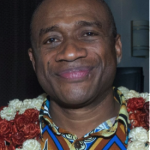 Temo Sasau (I-taukei) is married with one child (son) whose birthday is also on World AIDS Day. He had worked with Fiji Red Cross for over 10 years. Diagnosed with HIV in December 2006, Temo was discreetly demoted from his job to a casual staff position. Temo joined Pacific Islands AIDS Foundation (PIAF), a regional organisation that focuses solely on improving the quality of life of people living with HIV. Through PIAF, he has become one of their regional PLHIV advocates, coordinating the regional AIDS Ambassadors work and works towards the development of support groups in Fiji for people living with HIV. As an Advocate, Temo does outreach and peer support in most of the Pacific Islands countries especially with Ambassadors in Vanuatu, Samoa, Kiribati, Fiji and Solomon Islands. He is involved in the development of support groups specifically for people living with HIV and is currently conducting a weekly support group meeting for people living with life-threatening illness. Temo recently joined Empower Pacific (formerly known as Pacific Counselling & Social Services) as the National Manager Clinical Services after the closure of PIAF early 2013. He is currently the PLHIV representative for the Pacific Response Fund Committee (PRFC) and the Pacific Islands Multi-Country Coordinating Mechanism (PIRMCCM).
Temo Sasau (I-taukei) is married with one child (son) whose birthday is also on World AIDS Day. He had worked with Fiji Red Cross for over 10 years. Diagnosed with HIV in December 2006, Temo was discreetly demoted from his job to a casual staff position. Temo joined Pacific Islands AIDS Foundation (PIAF), a regional organisation that focuses solely on improving the quality of life of people living with HIV. Through PIAF, he has become one of their regional PLHIV advocates, coordinating the regional AIDS Ambassadors work and works towards the development of support groups in Fiji for people living with HIV. As an Advocate, Temo does outreach and peer support in most of the Pacific Islands countries especially with Ambassadors in Vanuatu, Samoa, Kiribati, Fiji and Solomon Islands. He is involved in the development of support groups specifically for people living with HIV and is currently conducting a weekly support group meeting for people living with life-threatening illness. Temo recently joined Empower Pacific (formerly known as Pacific Counselling & Social Services) as the National Manager Clinical Services after the closure of PIAF early 2013. He is currently the PLHIV representative for the Pacific Response Fund Committee (PRFC) and the Pacific Islands Multi-Country Coordinating Mechanism (PIRMCCM).
Temo has almost 20 years of hands on experience working with people at the grassroots level, including marginalised and stigmatised groups. For 5 years he specifically focussed on high-level advocacy with government leaders and organisations. Temo is passionate in peer treatment adherence support for those taking prescribed medicines for the rest of their lives such as antiretroviral therapy (ART).
Temo Sasau is proud to be a Fijian living with HIV and continues to look for ways to support others who are living with HIV and their families.
Maritza Segura Villalva – Ecuador
Maritza is an Ecuadorian mestiza, with Indigenous and Afro-Ecuadorian ancestry. She has her Doctorate in Psychology with a specialty in Psychoanalysis and working with groups. Maritza is an anthropologist (FLACSO-Ecuador).
Maritza has twenty years of work experience around themes of human rights, gender, sexual and reproductive health and prevention of violence against women. In the last 8 years, she has worked in the prevention of HIV in Indigenous communities.